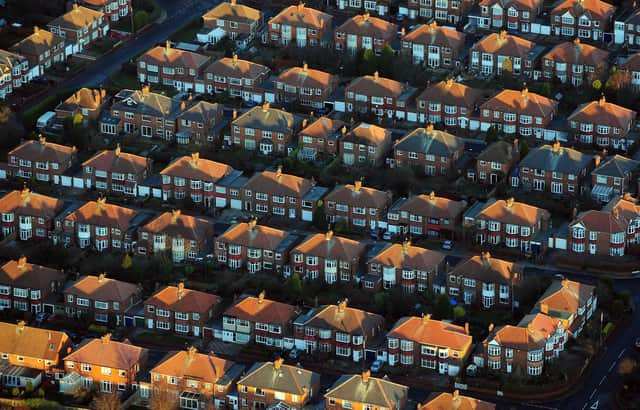More empty homes in Central Bedfordshire, as numbers rise in England


There are more long-term empty homes in Central Bedfordshire, new figures show, as the total numbers in England rise.
Action on Empty Homes said the fact more than half a million properties are vacant or used as second homes, while more than 100,000 families across the country are in temporary accommodation, is a “national disgrace”.
Advertisement
Hide AdAdvertisement
Hide AdIt called on the Government to introduce a new national empty homes programme to create additional housing supply for those most in need.
Department for Levelling Up, Housing and Communities figures show 1,289 homes in Central Bedfordshire were long-term empty as of October – an increase from 1,123 during the same period in 2022.
The figures cover the number of dwellings that have been empty for more than six months, excluding those due to flooding or properties left by people in prison.
Nationally, more than 261,000 homes were long-term empty. The number rose by 5% and is the highest since 2011, excluding the pandemic-related figures from 2020.
Advertisement
Hide AdAdvertisement
Hide AdThere were also over 263,000 properties registered as second homes, with 289 of them in Central Bedfordshire.
Rebecca Moore, director of Action on Empty Homes, said: “It beggars belief that while children are growing up sharing beds in temporary accommodation, our nation has over a quarter of a million homes sitting empty. To say this is a national disgrace is a profound understatement.
“Long-term empties are a huge missed opportunity to invest in green retrofit and create new jobs.”
She added: “A new national empty homes programme is long overdue – the Government needs to step up to the plate and offer funding and incentives to get these homes back into use.”
Advertisement
Hide AdAdvertisement
Hide AdIn the East of England, 25,584 homes were long-term vacant, which was 6.6% more than last year.
Matt Downie, chief executive at Crisis, said: “The country has been crying out for genuinely affordable homes for years now.
“With the number of households trapped in temporary accommodation at a record high, having thousands of properties sitting unnecessarily empty for long periods is an open goal for the Westminster government, if it wants to bring these numbers down.
“Our research shows that if councils were given the necessary tools and funding, backed by a concerted effort from government to repurpose properties through a national Empty Homes initiative, we could provide 40,000 additional homes over the next four years to people who are homelessness or at risk.”
Advertisement
Hide AdAdvertisement
Hide AdSeparate figures show 155 homes owned by private registered providers in Central Bedfordshire, which are self-contained social and affordable rent houses, were vacant in 2022.
A DLUHC spokesperson said: “We have reduced the number of long-term empty homes by more than 50,000 since 2010 by giving councils powers to bring empty properties back into use, delivering new homes for communities.
“Councils can increase council tax by up to 300% on long-term empty properties, and take over empty homes by Compulsory Purchase Orders and Empty Dwelling Management Orders.
“We recently laid out an ambitious long-term plan for housing and are on track to deliver one million homes this Parliament.”